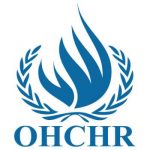Aadel Haleem/CBC
By
OHCHR
Speaking ahead of President Barack Obama’s visit to Flint, Michigan today, three United Nations experts have called for immediate action to address the serious human rights concerns brought upon by the contamination of Flint’s water supply and the devastating consequences for its residents.
“The Flint case dramatically illustrates the suffering and difficulties that flow from failing to recognize that water is a human right, from failing to ensure that essential services are provided in a non-discriminatory manner, and from treating those who live in poverty in ways that exacerbate their plight,” said the UN experts on extreme poverty, water and sanitation, and housing.
They welcomed President Obama’s visit as “an opportunity to address the situation in Flint and to show global leadership by acknowledging that governments the world over have a human rights-based obligation to ensure everyone’s access to safe drinking water and sanitation, no matter what their socio-economic status.”
“Decisions would never have been made in the high-handed and cavalier manner that occurred in Flint if the affected population group was well-off or overwhelmingly white,” said the UN Special Rapporteur on extreme poverty and human rights, Philip Alston.
“Elected officials would have been much more careful, there would have been a timely response to complaints rather than summary dismissals of concerns, and official accountability would have been insisted upon much sooner,” he said.
The expert on extreme poverty noted that the decline of federal funding in the US for water and sewer systems in recent decades has disproportionally affected poorer cities: 41.5% of Flint residents live below the poverty line, and 56.6% are African-Americans.
“The fact that Flint residents have not had regular access to safe drinking water and sanitation since April 2014 is a potential violation of their human rights,” warned the UN Special Rapporteur on the human right to safe drinking water and sanitation, Léo Heller. “Serious problems reported on water quality, particularly high concentrations of lead, are also concerning human rights issues.”
“Flint residents are confronted with one of the most expensive water and sanitation systems in the US, which has led to many thousands of them receiving water shutoff notices in 2015 because they could not afford their bills,” the expert said.
The UN Special Rapporteur on adequate housing, Leilani Farha, cautioned that “the impact on housing and living conditions for an already vulnerable group is clear and devastating.”
“There are deep and obvious connections between the human right to adequate housing, the human rights to safe drinking water and sanitation and the right to life,” the expert said.
“Persistently high water and sewerage rates cause housing affordability issues and may expose the most vulnerable residents to homelessness when they can no longer afford their bills,” Ms. Farha stated.
The three UN experts also expressed concern that the water crisis in Flint will have a deep and long-lasting impact on its residents. Lead poisoning could permanently impair the health of thousands of people, particularly children, and the psychological impact of the crisis has been severe. “Trust in the local authorities has been seriously undermined,” they said.
“A city that has been plagued by poverty and its related ills, now has the additional burden of overcoming another crisis,” the experts noted. “The residents of Flint have a right to know what happened and who is responsible for the water crisis.”
“We call on the federal and state governments to use the occasion of President Obama’s visit to map out a human rights compliant strategy to ensure that such events are not replicated in other parts of the country,” the UN experts concluded.




Here is my own view, for what it is worth, about the Flint water crisis: The Flint Michigan water crisis – corporate criminality and environmental pollution: https://rupensavoulian.wordpress.com/2016/03/05/the-flint-michigan-water-crisis-corporate-criminality-and-environmental-pollution/ Cheers Rupen Savoulian